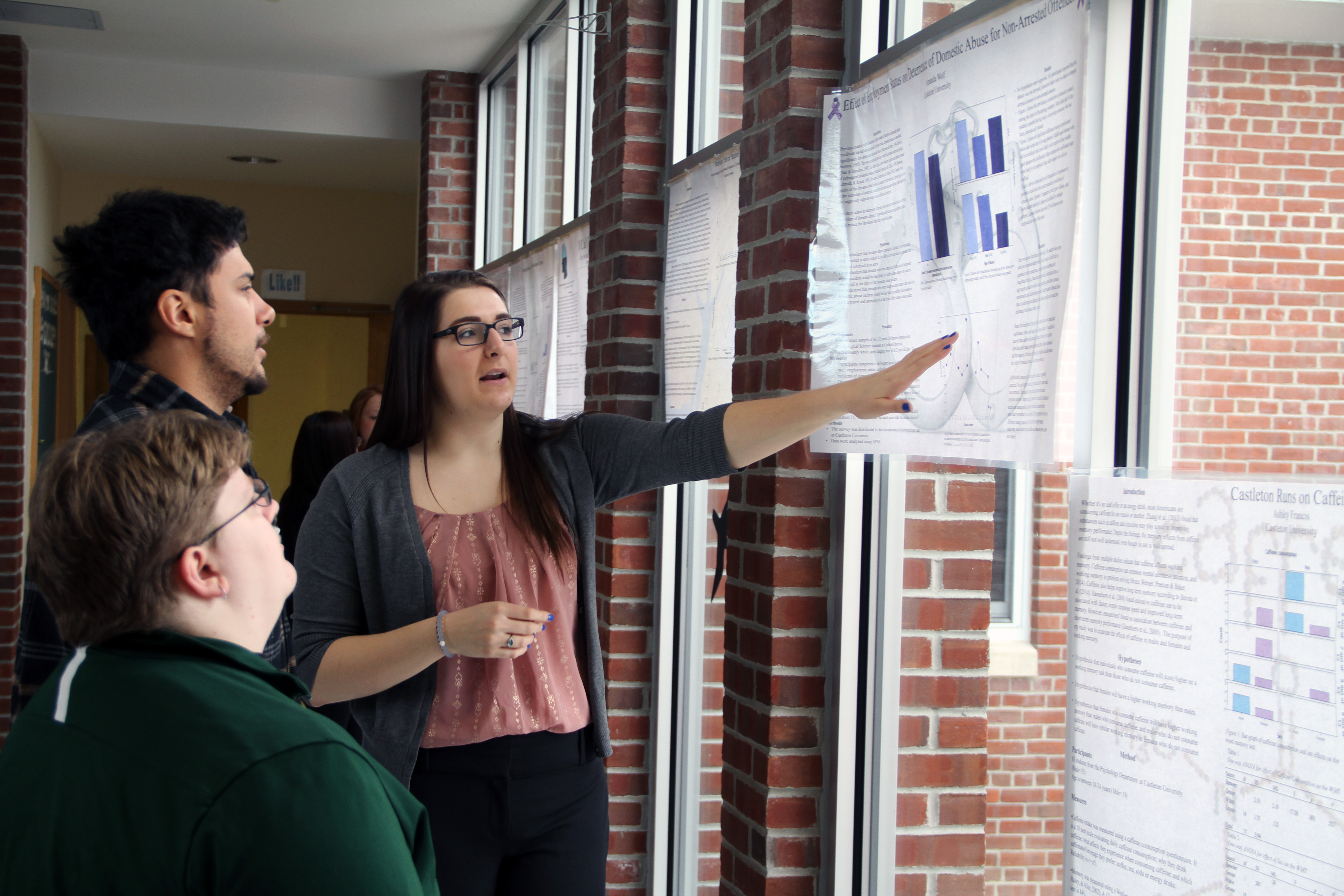
This major is tailored to students interested in pursuing careers applying psychology to the judicial process in courts, law enforcement, corrections, probation and parole, or the general practice of law. It is designed to prepare students for further graduate study in the field and related fields such as school psychology. This major combines coursework dedicated to understanding and practicing forensic psychology with opportunities to gain hands-on experience with psychological practitioners in applied psychology fields.
Graduates of the Bachelor of Science program in Forensic Psychology will be able to meet the following learning goals, which are a combination of field-specific knowledge and application as well as "soft skills" that develop through a strong liberal arts program. These goals are adapted from the American Psychological Association recommendations for undergraduate study in psychology.
Goal 1: Knowledge Base in Psychology
1.1 Describe key concepts, principles, and overarching themes in psychology
1.2 Use and evaluate theories to explain and predict behavior, including advantages and limitations in the selected frameworks
1.3 Compare, contrast, and critique psychology's major subdisciplines
1.4 Summarize important aspects of the history of psychology, including key figures, central concerns, and theoretical conflicts
Goal 2: Scientific Inquiry & Critical Thinking
2.1 Read and summarize complex ideas, including future directions, from psychological sources and research accurately
2.2 Identify and develop a comprehensive strategy for locating and using relevant scholarship (e.g. databases, credible journals) to address psychological questions
2.3 Design and conduct complex studies to test a hypothesis based on operational definitions
2.4 Apply knowledge of research skills necessary to be an informed consumer of research or critic regarding unsupported claims about behavior
2.5 Evaluate the effectiveness of research methods in addressing a research question
Goal 3: Ethical and Social Responsibility in a Diverse World
3.1 Apply ethical standards to evaluate psychological science and practice
3.2 Develop psychology-based strategies to facilitate social change to diminish discriminatory practices
3.3 Pursue personal opportunities to promote civic, social, and global outcomes that benefit the community
3.4 Articulate psychology's role in developing, designing, and disseminating public policy
3.5 Seek opportunity to serve others through volunteer service, practica, and apprenticeship experiences
Goal 4: Communication
4.1 Craft clear and concise written communications to address specific audiences (e.g. lay, peer, professional)
4.2 Use grammar appropriate to professional standards and conventions (e.g. APA writing style)
4.3 Create coherent and integrated oral arguments based on a review of the pertinent psychological literature
4.4 Deliver complex presentations within appropriate constraints
4.5 Interact sensitively with people of diverse abilities, backgrounds and cultural perspectives
Goal 5: Professional Development
5.1 Recognize the value and application of research and problem-solving skills in providing evidence beyond personal opinion to support proposed solutions
5.2 Accurately self-assess performance quality by melding external standards and expectations with their own performance criteria
5.3 Incorporate feedback from educators, mentors, supervisors, and experts to improve performance
5.4 Collaborate successfully on complex group projects
5.5 Formulate career plan contingencies based on accurate self-assessment of abilities, achievement, motivation, and work habits